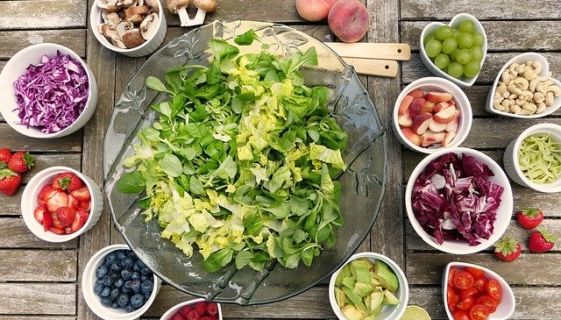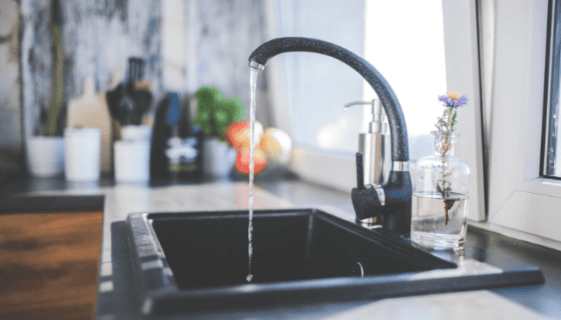One of the simplest and most effective ways to care for your body is to stay hydrated. Hydration helps your body digest and metabolize the foods you eat, aids your kidneys in removing waste products, and is essential for all bodily functions. Water is one of the six essential nutrients, alongside carbohydrates, fats, proteins, vitamins, and minerals. Since our bodies are about 60% water, it’s no surprise that we need it to function properly. Even if you’re not exercising or living in a hot climate, your body still loses water throughout the day through sweat, urine, bowel movements, and tears. Consistently replenishing water is crucial for maintaining your fluid balance and overall health.
How Much is Enough?
Everyone’s hydration needs are slightly different. Factors such as height, weight, activity level, climate, illness, genetics, and diet play a role in determining how much water you need. Most people require between 8-12 cups per day, or about 0.5 – 1 fluid ounce per pound of body weight. On active days or when you’re fighting an infection, your body will need more water. While it can be annoying to drink water all day long because of more frequent restroom breaks, this actually indicates that your body’s waste system and fluid balance are working properly.
Benefits of Staying Well-Hydrated
- Kidney Function: Fluids help transport waste products in and out of your cells, which then pass through your kidneys to be excreted in urine. Your kidneys need a steady supply of water to continuously process and remove toxins from your body.
- Bowel Function: Proper hydration keeps your gastrointestinal tract flowing smoothly, making bowel movements comfortable and regular. Dehydration forces your colon to extract water from stool, leading to constipation.
- Muscle Function: Muscle cells need water to function properly. Ensure you drink enough water before and during exercise or physical activity. Aim to drink about 16 fl.oz. of water within 2 hours of exercising, and continue hydrating at regular intervals.
- Appetite Control: We often mistake thirst for hunger. Drinking water regularly helps curb your appetite and reduce false hunger sensations. Eating water-rich foods like fruits, vegetables, beans, broth-based soups, and oatmeal can also help meet your fluid needs and satisfy your appetite.
- Skin Health: Dehydration can make your skin dry and less elastic, which affects its ability to heal cuts and abrasions.
- Blood Pressure: Blood is largely composed of water, so dehydration can increase blood pressure to compensate for decreased volume. Staying hydrated helps maintain stable blood pressure and improves circulation to all organs.
Water is Not the Only Factor in Hydration
While water is essential, electrolytes are also crucial for staying hydrated. Electrolytes are minerals that help regulate fluid balance, muscle contractions, and nerve signaling. They dissolve in bodily fluids, producing electrically charged particles (ions) necessary for various physiological functions. The primary electrolytes are:
- Sodium: Controls blood pressure and volume, essential for muscle and nerve function.
- Potassium: Aids in muscle contraction, nerve signals, and fluid balance within cells.
- Calcium: Necessary for muscle contractions, blood clotting, and maintaining strong bones.
- Magnesium: Supports muscle and nerve function, blood sugar control, and bone health.
- Chloride: Works with sodium to maintain fluid balance and plays a role in the immune and digestive system functions as hydrochloric acid in the stomach.
Without these electrolytes, water would simply pass through our bodies without being absorbed or used. Proper hydration starts with drinking enough water but also relies on a regular intake of electrolytes. An imbalance can lead to dehydration, muscle cramps, fatigue, and more severe health issues. Fortunately, most of us get enough electrolytes, especially if you are prioritizing fresh fruits, vegetables, legumes, and whole grains. During prolonged exercise or excessive sweating, it’s a good idea to replenish electrolytes with a small snack or an electrolyte powder mixed with water.
Be Wary of Added Sugars
While electrolytes are important, many electrolyte drinks contain unhealthy amounts of added sugar. One or two grams of sugar isn’t a big deal, but many popular rehydration drinks have 20 or more grams of added sugar. For example, Gatorade’s Thirst Quencher has 36 grams of added sugar per serving. High sugar intake is linked to an increased risk of cancer, particularly in women. Added sugars, as opposed to naturally occurring sugars in fruits and vegetables, are associated with a higher risk of developing cancer.
If you prefer flavored water without added sugars, try these alternatives:
- Infuse water with fruit, cucumbers, or mint leaves.
- Add a splash of lemon juice.
- Use an herbal tea bag (which will diffuse in cold water).
- Drink calorie-free seltzer waters.
FREE EBOOK: Sugar and Cancer – What You Need to Know to Reduce Risk and Improve Your Health
Staying hydrated is essential for maintaining energy levels and overall health. Make the most of electrolytes and avoid added sugars. For a refreshing, sugar-free beverage, try our Watermelon Mint Mocktail recipe. It’s naturally sweet from fresh watermelon, which also provides potassium and magnesium to help balance fluids and keep you hydrated.
IMPROVE YOUR DIET IN 7 DAYS:Take control of your health and combat inflammation with our free Diet Kickstart
Hydration is a cornerstone of health. By understanding your body’s water needs and choosing beverages wisely, you can enhance your well-being and support all of your body’s functions. Remember, proper hydration isn’t just about drinking water—it’s also about maintaining a balance of essential electrolytes. Stay hydrated, stay healthy!
For more tips on maintaining a healthy lifestyle, check out our free online course and learn about creating a body that cancer doesn’t like in this webinar replay video.



 Melanya Kushla
Melanya Kushla 

